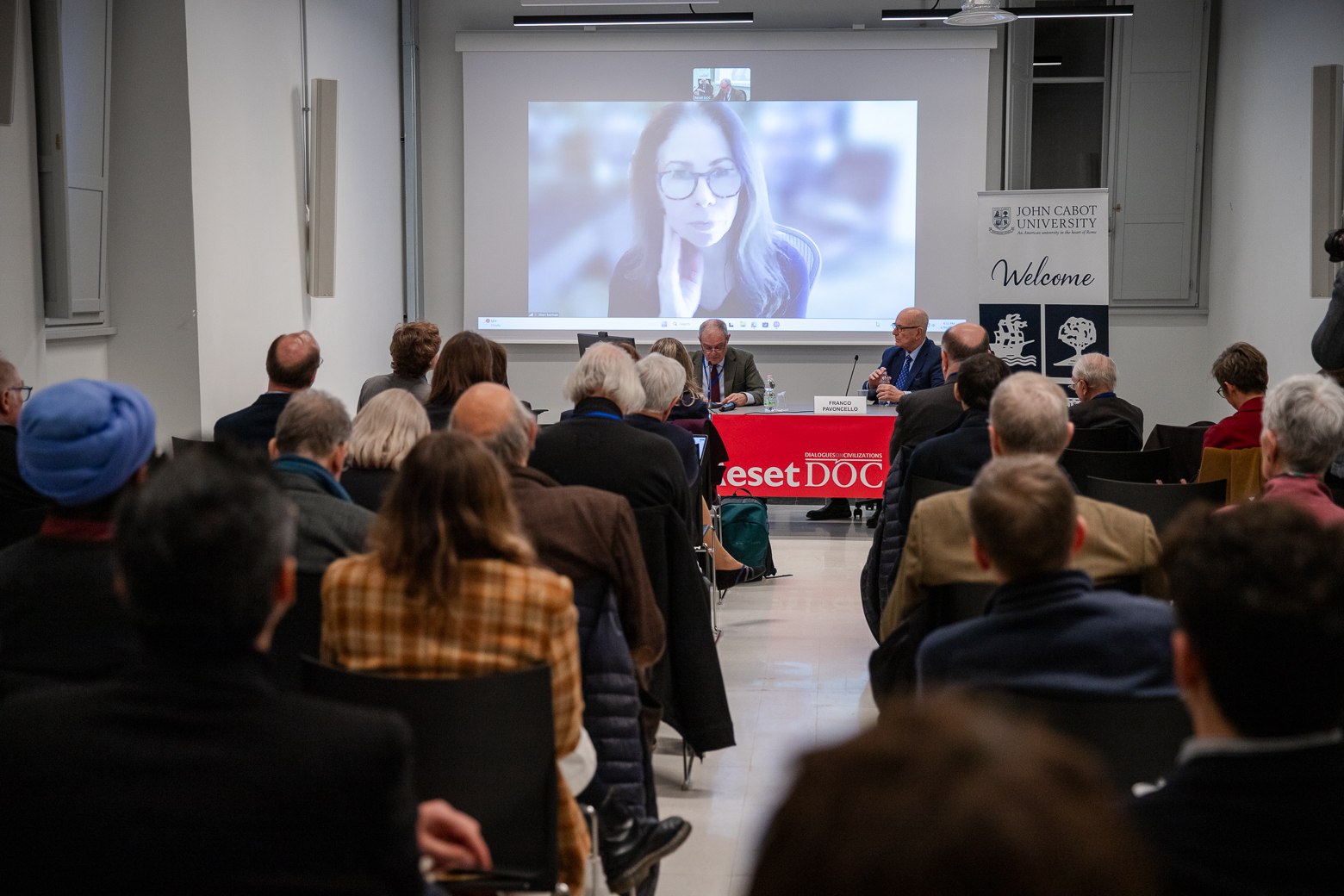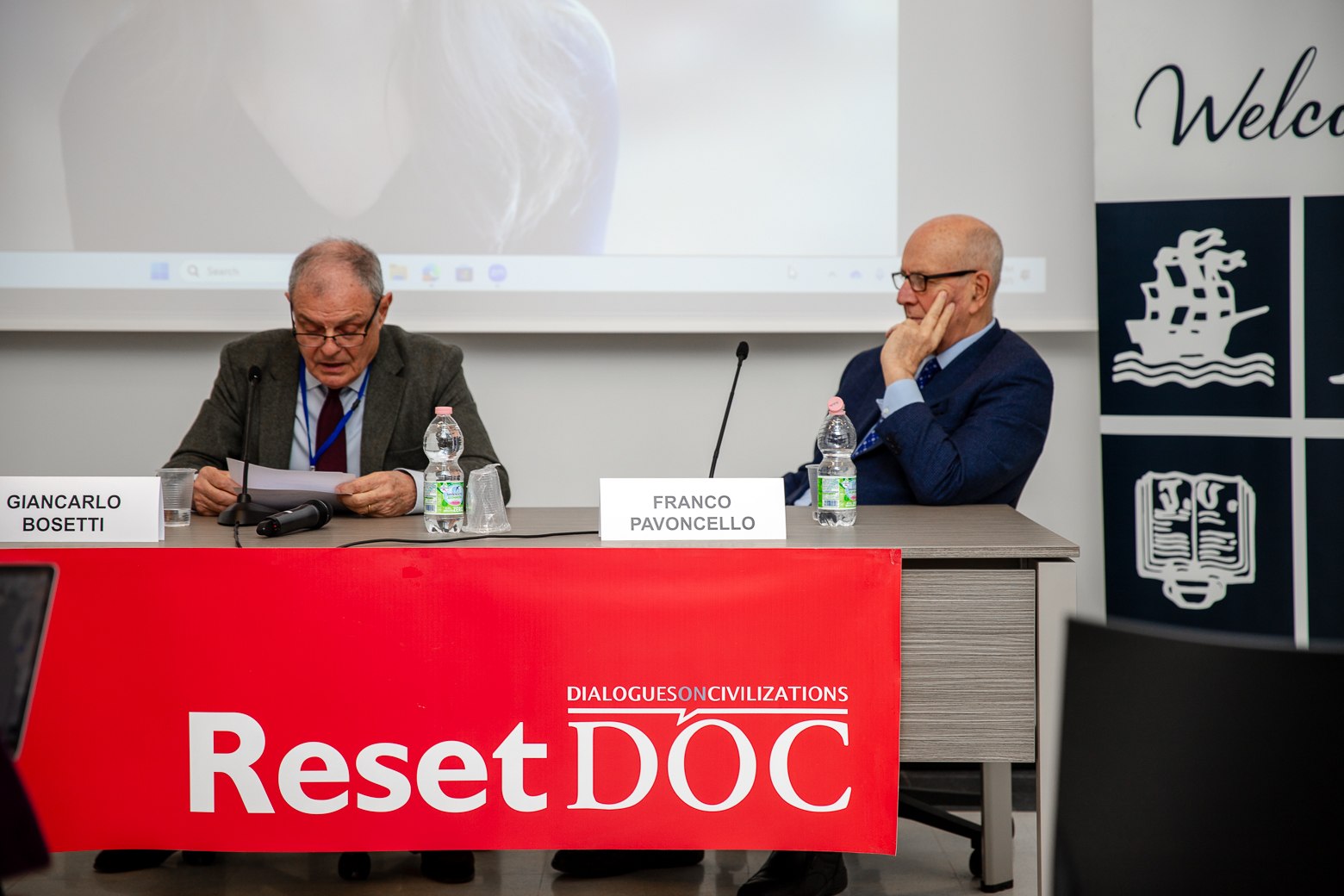Liberal Democracy Revisited: JCU Hosts 3-day International Conference
From January 30 to February 1, John Cabot University hosted “Liberal Democracy Revisited: Ideas for New Political Leadership to Address the Needs and Fears of the Many.” This three-day international conference on the current challenges of liberal democracies was organized by Reset-Dialogue on Civilizations in collaboration with JCU. Reset is an independent organization committed to fostering research on international relations, cultural and religious pluralism, and advancements of human rights.

The academic gathering brought together political scientists, legal scholars, sociologists, and analysts from some of the world’s most prestigious universities to discuss the crisis of solidarity and trust in liberal democracies and the contradictions inherent in contemporary society. The conference aimed to address these challenges through interdisciplinary discussions that explored potential solutions. Among the participants were Professors Lea Ypi (London School of Economics), Sheri Berman (Barnard College, Columbia University), Wolfgang Streeck (Max Planck Institute for the Study of Societies, Cologne), Craig Calhoun (Arizona State University), James Hunter (University of Virginia), Michael Driessen (John Cabot University), Jonathan Laurence (Boston College), and John Milbank (University of Nottingham), as well as Giuliano Amato, the former Prime Minister and President of Italy’s Constitutional Court.
As JCU President Franco Pavoncello noted in his opening remarks, “the conference is a rare opportunity for scholars to meet and engage in a dialogue about the difficulties facing modern democratic institutions. JCU is proud to host such a significant academic and scientific event.”
Giancarlo Bosetti, director of Reset, observed that liberal democracies struggle to coalesce citizens around long-term objectives. “Liberal democracies, particularly in North America and Western Europe, are facing a crisis due to economic, social, and political issues, leading to voter disengagement, political polarization, and growing authoritarianism. This deepening divide threatens the future of democratic systems, and necessitates a course correction,” said Bosetti.

Among the prominent Italian figures contributing to the event was former prime minister Giuliano Amato, who spoke about the complex relationship between politics and the economy and discussed how to “save liberalism from itself.” According to Amato, “15 years ago, the fragility of democracies was already evident, and the decline of political parties and societal fragmentation led to instability and voter disillusionment. The challenge for liberals today is to rebuild cohesion and engage citizens in political processes, or risk fueling the appeal of authoritarian regimes.”
This three-day event provided an invaluable platform for critical conversations about the future of liberal democracies, offering diverse perspectives on the issues that shape the political landscape today.





